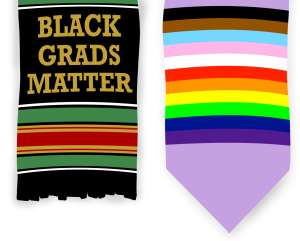
UTSA’s downtown campus has a new address. On August 8, 2011, just weeks before the fall semester began, the City of San Antonio went ahead with plans to change historic Durango Boulevard to César E. Chávez Boulevard.
On March 31, 2011, a City Council Request (CCR) was made by then Councilman Philip Cortez to change the street name to honor Chávez, a farmer and civil rights activist whose actions founded the National Farm Workers Association, later called the United Farm Workers of America. In a 1969 Time Magazine article, Father Bernardo Kenny, a Sacramento, CA priest with a very large Mexican-American congregation, stated that Chávez “focused attention on the problem of the farm workers, and he made the Mexican-Americans proud to be Mexican-Americans.”
The San Antonio Conservation Society was not opposed to honoring Chávez, but was opposed to the street name change on the grounds that the city had not followed proper procedure. Nancy Hamner Avellar, president of the society stated, “The city council has the authority to make name changes of streets if they choose.” She went on to say, “From the very beginning, we protested the process they used. They were using a new ordinance that had not yet gone into effect.” Since the CCR was made on March 31, the city should have followed the procedures of the old ordinance, which included the number of council votes required to pass the CCR.
The society was also concerned about the historical loss. “Although later on some people claimed that the street’s name was not historic, we do have substantial proof that it was,” Avellar said.
One of Cortez’s supporting reasons for the name change was that “there was no Mr. or Mrs. Durango that we named the street after.” In fact, Durango Boulevard received its name back in 1882 and was named after the Mexican state Durango.
“At that time there were a number of streets in San Antonio whose names were changed to honor Mexico,” according to Avellar. It is believed that during the late 1870s, the United States had suffered during a general economic depression while San Antonio had survived quite well, mostly due to the good trade with Mexico. The street name changes were also beneficial for San Antonio-Mexico relations since there were so many waves of Mexican immigrants at the time. Street names like Durango, San Luis and Vera Cruz—all states in Mexico—were meant to help make areas more familiar for the immigrants in their new city.
The change affected close to 600 addresses on the street, according to the Bexar Appraisal District’s Internet database. Many residents of the former Durango Boulevard, and of the city, were in opposition. Most were concerned about the amount of money the city expected to spend on changing the street signs, which was estimated at $100,000.
“Just because you can do something, doesn’t mean you should. This is NOT responsible spending in any fiscal situation,” stated one San Antonio resident (who goes by the moniker TexasNative) in response to a news brief regarding the sign change on WOAI.com.
Many of the properties along the newly named César E. Chávez Boulevard still have Durango listed on signs and buildings accentuating that converting to the new name will be a slow process.
The Institute of Texan Cultures is one of the properties adjusting to the name change. Signs outside listing the address still show Durango Boulevard, but, according to Aaron Parks, Chief Operations Officer for the Institute, the signs should be corrected in another week or two.
“The university was not in opposition to the name change. We’re aligned with the university,” Parks said.
Towards the end of May, the society was granted a temporary restraining order barring the city from changing the street signs.
To extend the temporary restraining order, the society would have to prove two points: that the society had suffered irreparable damage and that the city had not followed the established process.
In July, State District Judge Renee McElhaney denied the first point on the grounds that the monetary loss to the society did not constitute irreparable damage and that it did not suffer any personal or physical harm.
The society did earn the right to defend the second point at a trial set for November 7, 2011. Avellar concedes, “It’s not going to really change the naming of the street because that’s out of our hands, but we have to stand on the principle that the city needs to do the right thing.”









